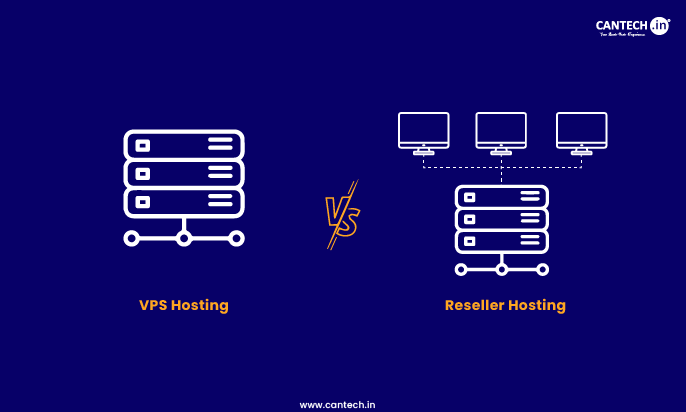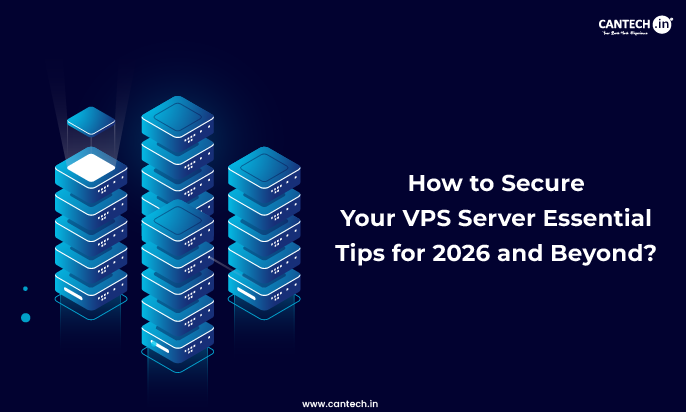As a developer, system administrator, or an IT professional, having full control over a hosting environment is a make-or-break advantage nowadays, and this is where Unmanaged VPS (Virtual Private Server) hosting comes in. Unmanaged VPS hosting puts the power in your hands, giving raw server resources and root access. If you are skilled enough to manage a server, this option will deliver unmatched performance. On the other hand, if your skills are lacking, you won’t have the luxury of depending on providers for server maintenance, technical support, or managed services.
This blog is for anyone comfortable with the server-side interfaces, and the command lines. Unmanaged VPS hosting is the perfect solution for running multiple server environments, setting up custom firewalls, and deploying complex web applications. If you are a developer, this hosting solution enables you to gain full control over your dedicated server while giving you access to a cost effective solution which delivers on performance and scalability.
Today, we will cover everything you need to know about unmanaged VPS hosting, including its advantages, technical prerequisites, picking a provider, and security and performance attention tips. Content created with experience, expertise, authority, and trust (EEAT) is aimed at helping you confidently make decisions. So, let us discover together how unmanaged VPS hosting enhances your projects and provides complete control over your server environment.
What is Unmanaged VPS Hosting?
Also referred to as self-managed VPS, unmanaged VPS hosting is a type of hosting service whereby the user takes full control of managing and maintaining the virtual private server. Here, hosting providers will offer you a server with the required resources (CPU, RAM, storage) and grant you root access. Everything beyond that, is your responsibility. You or your team handles everything from software installation and configuration to updates, security patches, backups, and performance monitoring.
Consider unmanaged VPS hosting to be like having the keys to a vacant flat. While the framework exists, it’s up to you to “equip” it – install utilities, set up the repairs, and maintain operational efficiency. An ideal situation untethered to pre-built frameworks and third-party shackles, this freedom is perfect for developers and sysadmins, or companies with industry-adept personnel. You are granted absolute freedom.
On the other hand, fully managed VPS hosting is similar to a fully serviced apartment. The web hosting service provider looks after the server activities and management. While this is great, it does limit how far one can control or customize things. With unmanaged VPS, you are free to make adjustments to architecture, which opens the path to greater optimization, advanced resource allocation, and cost-efficiency. The flipside, greater control and flexibility, almost always requires advanced technical expertise and time investment.
Unmanaged VPS Hosting vs Managed VPS Hosting
1. Pricing
The primary distinction between unmanaged and managed VPS hosting is cost. Unmanaged VPS hosting is usually much cheaper because services like server monitoring, regular updates, automated backups, and technical support are not included. It is a cost-effective solution for developers and companies that have an in-house IT team.
You do not have to pay for managed services if you do the work yourself. Of course, there is still the matter of your time, and depending on your core business focus, too much time spent managing the server could overshadow the benefits from a reduced price. It’s best to have a clear understanding of these factors and how they affect your overall value.
2. Customization & Flexibility
Unmanaged VPS hosting allows you to have full root access, granting full control over the server. You can install any OS, software, firewall, control panel, or configuration. This is best for developers building custom stacks as well as businesses specializing in certain applications.
On the other hand, managed VPS services often have restrictions on what can be installed or modified. To simplify the management of the VPS, the provider might use management frameworks that could be frustrating to power users. Unmanaged hosting clearly wins in the scenario where full customization and complete control of the server’s backend access is required.
3. Responsibility
With unmanaged VPS hosting, the server management is fully in your control. This includes applying updates, performing maintenance, firewall configuration, setting up security frameworks, and vulnerability monitoring. The hosting provider is only responsible for the physical server and the rest is upon your control.
This scenario might be exhausting to someone, but for the system administrators or organizations with IT departments, it is suitable. Having control over the dedicated server greatly increases transparency and security, but it can be tricky because everything will be your responsibility when failures happen. Unmanaged VPS hosting means no support, which makes it essential to be fully prepared and properly plan for everything.
4. Infra Skills
The fundamentals of maintaining a Virtual Private Server do not include consideration of a user’s experience level. Having at least basic knowledge of command line, a sound understanding of Linux, server-configs, and web-server management software either in the form of Apache, Nginx, and even simple database handling alongside grappling with cybersecurity principles is critical. The severity of misconfiguring components can wreak havoc with breaches without the proper mechanisms in place.
Grasping the fundamentals of Virtual Private Server technology can also be helpful for beginning bloggers, small stores, or even budding business models, not dealing with the advanced techniques associated with server management. Having a sound understanding of tech can work in favor of an unmanaged VPS, while a basic understanding can offer the alternative for a more managed experience.
Unmanaged VPS Hosting vs. Shared Hosting
1. Performance
In comparison to shared hosting where elements like the CPU, RAM, and and even the bandwidth is limited to a set range, VPS customers are offered a dedicated slice. This will enable any apps or websites to operate without throttling because of other users or hosts that share the server. The VPS is a sound investment for websites and apps that are bound to grow in the foreseeable future due to the increased performance stability.
Shared hosting is typically where new site owners begin, but site performance is compromised during peak loads or traffic surges. If performance is essential for user experience or affects SEO, upgrading to a VPS is a better option. Unmanaged VPS provides even better performance by allowing you to adjust server settings for more optimization.
2. Isolation & Security
In shared hosting, your website is hosted with numerous others in a single server. If one of those websites gets hacked, your site can get hacked too because of shared risks. With VPS hosting, your environment is completely isolated. This reduces the risk of cross-contamination, hence increasing data security.
Unmanaged VPS also enables you to set your own security measures, firewalls, access controls, or SSL, tailored to your exact requirements. This additional effort and expertise, especially for sites handling sensitive or financial data, results in a more secure hosting environment.
3. Flexibility
Shared hosting comes with many restrictions. You cannot install custom software or access root files. This is frustrating for developers or businesses that need greater flexibility to run specific tools, applications, or scripts. This is a one-size-fits-all approach.
Unlike managed solutions, unmanaged VPS hosting gives you complete freedom. You get to select your operating system, install custom frameworks, optimize for better performance, and even run several sites or applications on a single server. This level of control is perfect for developers since there are no constraints, which is great for sophisticated applications, custom web setups, or SaaS solutions.
Unmanaged VPS vs. Dedicated Server: Key Differences
When considering top-grade VPS hosting, two prominent contenders emerge: Managed VPS (Virtual Private Server) and Dedicated Servers. Both come with high control features, offering market-leading privacy and security, and isolation of resources, although they diverge with regard to infrastructure, price, and scale. Let us highlight some aspects that they differ on most, focusing on users who would like to have complete control over their hosting environment.
1. Infrastructure
A dedicated server is a complete physical machine reserved solely for your use. You have access to the complete machine resources like CPU, RAM, and disk space. This may suit large companies utilizing resource hungry applications, databases, or virtualization environments.
On the other hand, unmanaged VPS is a segment of a physical server that is virtualized. It operates within a shared infrastructure, resembling a dedicated server. Although virtual, VPS instances are strong in resource isolation and dedicated resource guarantees, providing a comparable experience for a fraction of the price.
2. Cost Efficiency
With dedicated servers, you rent an entire machine, paying for its processing power and hardware resources. This is far too much for smaller projects or businesses and can lead to a lot of overspending on resources that are far more than what is needed.
Instead, unmanaged VPS hosting serves as a much more cost-effective solution. You can still retain root access, OS of your choice, and dedicated resources, but without the capital expenditure of a physical server. This solution is great for developers or SMBs looking for a budget friendly option while needing high performance.
3. Customization and Control
Unmanaged VPS and dedicated servers offer root access and total control, which is provided by granting customizable and flexible environments. You are free to choose your OS, install necessary software packages, manage firewalls, and adjust server settings as needed for your project. You can exercise full control, as long as you understand what you are doing.
Nonetheless, unmanaged VPS hosting allows you to maintain this freedom without the physical hardware burden. It is akin to having a small data center without the hassle of dealing with hardware upkeep. It is a no-brainer for developers and system administrators focused on having control and performance in their projects. Both options are good, but with VPS, you get to your goals faster and for a lesser cost.
4. Scalability
One of the greatest benefits that come with VPS hosting is the scalability feature. Most of the time, you can upgrade your resources, such as CPU, RAM, and storage, with a click of a button on the hosting dashboard and sometimes without downtime. This is incredibly helpful for emerging applications and websites that experience traffic surges.
As for dedicated servers, they are a bit more rigid in nature. Scaling out will often mean moving to a new, more powerful server, which involves a manually intensive data transfer, a loss in service up time, and more overhead in cost to get set up. For rapidly scaling businesses, VPS provides the agility and flexibility that caters best to changing demands. Most businesses in the long run will find this option more optimal.
The Advantages of Unmanaged VPS Hosting
Affordability
An additional advantage of unmanaged VPS hosting is cost savings and affordability. Managed VPS or dedicated servers come with overheads of server maintenance or ongoing support. Those costs to support and maintain the server no longer need to be paid for with an unmanaged VPS. The only expenses incurred are the server resources for each core unit. CPU, RAM, storage, and bandwidth are the only costs. This drastically reduces expenses on a monthly basis. Unmanaged VPS is the best option for developers and startups, or even businesses that have the technical expertise and skills in-house.
Unmanaged VPS are available at an even more appealing result of no management fees. Additional funds can now be used on marketing, development, or scaling infrastructure. The only drawback is for users that are tech savvy and do require additional support. Reliability and performance do not take a hit with an unmanaged VPS.
Absolute Freedom
Unmanaged VPS hosting lets you have complete control since you are given root access. Hosting root access enables complete control of the server environment. This means users are not confined to a certain set of software or preset configurations by the hosting provider. Therefore, if you need to install a certain Linux distribution or proprietary software, set custom firewall rules, or install niche development frameworks, you can modify the server to fit the project exactly.
Individualized customization is useful for businesses operating specialized applications, agencies operating multiple client sites, or developers who need to optimize performance. You control everything from the operating system to the security protocols, which allows you to design and control a server that meets all your technical objectives.
High Performance & Flexibility
An unmanaged VPS is different from shared hosting, where resources are divided between dozens of users. With an unmanaged VPS, you are given server resources on a per user basis, meaning CPU, RAM and disk space will be allocated exclusively to your account. This guarantees performance throughout the day, even during peak traffic or heavy workloads. You will not be impacted by a “noisy neighbor” or random slowdowns due to other users’ activity.
In addition to performance, unmanaged VPS offers great flexibility. You can adjust resources, software choices, and server configurations to maximize efficiency. With the ability to scale resources, you can run a web app, database, or even a high-traffic website. You will receive both stability and adaptability, which are the two critical pillars of any serious online project.
The Best Setting for Developers
The ideal sandbox for developers is an unmanaged VPS. Deploying, breaking, and testing applications can be done in an environment that simulates a live server. This is perfect for trying out new technologies, troubleshooting code, or running containerized applications with Docker or Kubernetes. Full unrestricted access to troubleshoot and modify everything is a developer’s best asset for keeping up with tight development schedules.
Root access is particularly beneficial since server tasks can be scripted, CI/CD pipelines can be configured, or multiple environments can be set up on a single server. Regardless if you are a solo developer or part of a bigger engineering group, unmanaged VPS allows for the ease and independence to embrace quick and bold innovations and changes.
Unmanaged VPS hosting is tempting due to the independence it provides, but is a double edged sword. Full autonomy of the server allows full control, but this comes at the cost of server health, security, and performance. This list simplifies the workload for designers and IT professionals looking to switch.
Server Setup
As the first aspect of this role, the initial server setup involves the server environment installation, control panel setup such as cPanel, Webmin, or Plesk, and operating system installation which can be done on either a Linux or a Windows system. Prior to this, core software packages including web servers (NGINX or Apache), database servers (MySQL or PostgreSQL), and application specific required language runtimes need to be installed.
Security & Monitoring
System security such as setting up firewalls, intrusion detection systems, controlling SSH access, and disabling unused ports or services falls on your shoulders. Proactive server issue detection and solving, vulnerability scanning, and timely security patch application is a must to maintain the server. Failure to meet these security standards, especially on a public-facing VPS, would open the system up to server attacks.
Updates & Maintenance
Users oversee system updates as well as VPS managed hosting. A dedicated timetable for the installation of new system components, including web servers, enhances security and performance. These updates are critical mitigations of security vulnerabilities, compatibility issues, or server failures. Thus, a checklist and timetables are essential for system dependability.
Backups
A strategy for backing up data is crucial. For a VPS, you need to set up and manage automatic backups for critical data, configuration files, and applications. These backups also need to be stored securely. To ensure accuracy, they must be tested for restoration at intervals. In cases of hardware failures, software errors, or unintentional deletions, restoring from recent backups is essential to mitigate the threat of data loss.
Troubleshooting
A VPS also comes with its various problems such as service outages, and poor firewall configurations, and a VPS owner is tasked with resolving these issues. To fix these problems, one often needs to possess advanced command line skills, thorough log file scrutiny, and systems knowledge. Effective troubleshooting demonstrates a mastery of the software and hardware systems. It also involves a lot of independent research through the developer and community documentation. There is no managed support, only a self-directed guide to problem-solving.
Who Should Use Unmanaged VPS Hosting?
Developers, Web Agencies, and Experienced System Administrators
The uncontrolled VPS hosting system is best for web development agencies and system administrators as it grants them a complete control system over hosting tiers. These professionals usually need the adaptability to install particular libraries and execute unique tech stacks as well as configure the server to the project requirements. Unmanaged VPS hosting provides root access and system control flexibility, enabling specialists to design and maintain systems and bespoke solutions without external service limitations.
Individuals with a Strong Technical Background
Individuals with strong technical skills, especially in server administration, networking, and Linux systems, will favor Unmanaged VPS Hosting because it gives them the ability to dictate the terms of how their workloads will be handled. These users have the option to configure their preferred operating system, control panel, security measures, and all the way to the minutiae of software. Such intense tailoring is useful in provisioning numerous bespoke custom applications, staging environments, or other bespoke hosted services that are optimized for greater efficiency.
Clients Trying To Save Money Are Ready To Give Up Some Convenience
A virtual private server (VPS) is appealing to customers on a tight budget because there is no charge for automation and technical support. In exchange for lower monthly fees, you are able to forgo paying to automated processes for help with the setup, security, and updates. Powerful hosting resources are now available to startups, indie developers, and tech entrepreneurs. They now just require the backend work to be done.
Who Should Stay Away From Unmanaged VPS Hosting?
Without experience, novice computer users and incompetent server managers will struggle with VPS hosting. Universally lacking degrees and experience in applicable fields, people with no background in security, systems, command lines, and server management make simple and grievous configuration mistakes. Businesses that require marketing focus, customer support, or product innovation are very busy and can’t spare the additional need for dedicating staff, time or budget for server management. Such users are better off with managed hosting because they get maintained reliability and much needed, hassle-free peace of mind.
Conclusion
With all its advantages, unmanaged VPS hosting remains cost-effective for users seeking full control over their server environments. Unlike dedicated servers, VPSs offer customizable dedicated resources and are much cheaper priced. However, that flexibility does come with the burden of the server security, setup, maintenance, and troubleshooting all falling under your domain, making it a challenge for someone without the right technical skills or your time to properly manage the infrastructure.
As long as the user is comfortable with command-line interfaces and server health monitoring, unmanaged VPS servers pose as exceptional choices to host applications, development environments or even websites. For users lacking time, technical skills and prioritizing skills as a shared hosting or managed VPS would feel more appropriate. Ask instead, do you possess the confidence and skills to fully manage a server? If the answer is yes, is the next project based around unmanaged VPS hosting? That simple answer is what could determine your success and failure online.






